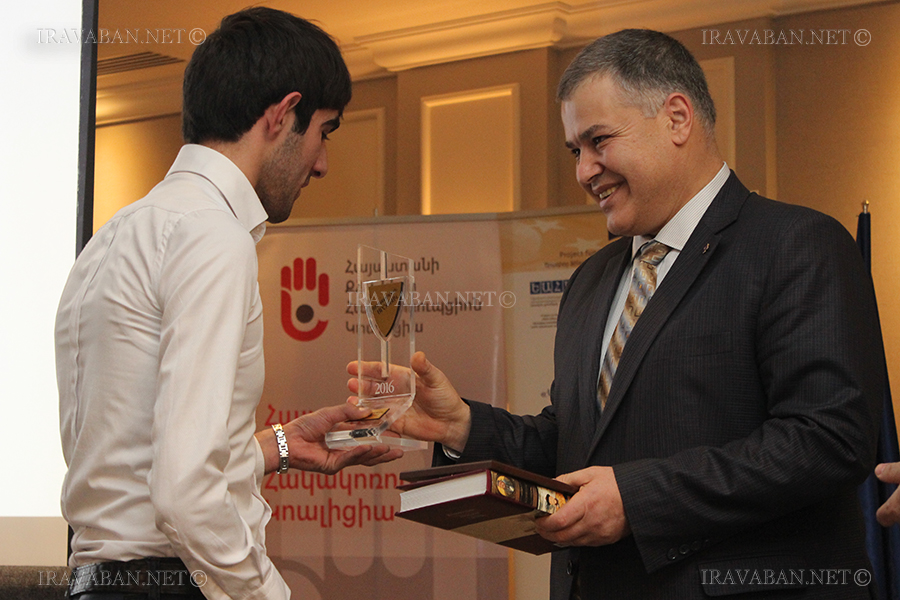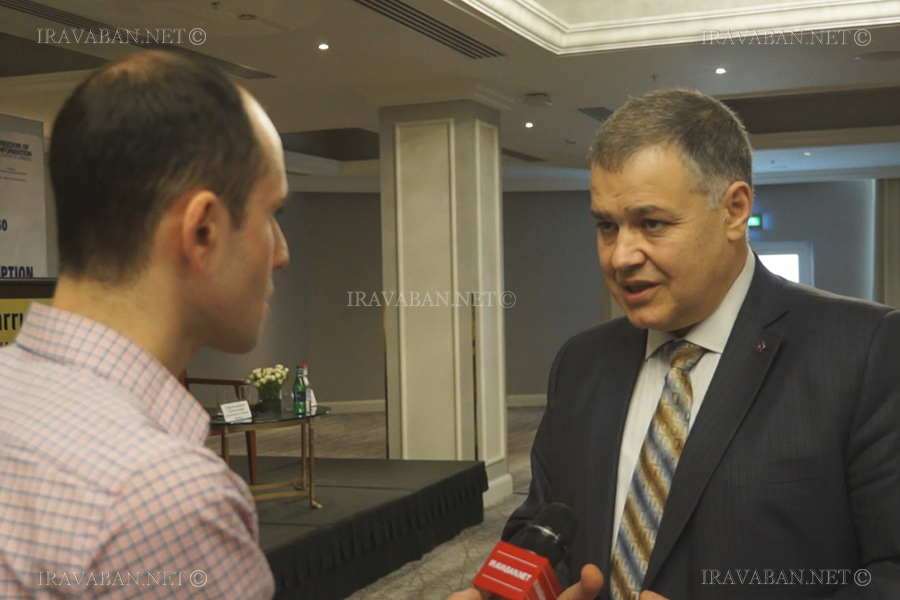“The activities of law enforcement agencies should remain undisclosed,” said Minister-Chief of Government Staff of the RA David Harutyunyan, while speaking about the universal anti-corruption body.
Our interlocutor referred to anti-correctional institutional system, administrative corruption and optimization. The details are in the interview below:
– Mr. Harutyunyan, on which anti-corruption body model are you working at present?
 – Of course, there are numerous models and none of them can be considered as primary. At present we assume that law enforcement authorities’ actions, which refer to prosecution should remain undisclosed. Whereas, preventive and educational actions, principally can be assigned to the Commission of Ethics of High-Ranking Officials. At present we study that model, moreover, we assume that the powers of the commission will be expanded in that model. What we understand by saying preventive? At present discussions concerning it are underway.
– Of course, there are numerous models and none of them can be considered as primary. At present we assume that law enforcement authorities’ actions, which refer to prosecution should remain undisclosed. Whereas, preventive and educational actions, principally can be assigned to the Commission of Ethics of High-Ranking Officials. At present we study that model, moreover, we assume that the powers of the commission will be expanded in that model. What we understand by saying preventive? At present discussions concerning it are underway.
– Theorists divide corruption into 2 types: administrative and elite corruption. Currently, steps referring to the second type are being taken: the Parliament is discussing the Draft Law on Illicit Enrichment at a special session, and what does the Government do in case of the first type?
 – You know, numerous steps against administrative corruption are being taken, moreover, some steps are unnoticed for the public, though the fight against administrative corruption is quite serious. I can list the legislative changes made during the past year and they all were aimed to struggle against administrative corruption. Let’s consider the social sector: integrated centers and services are created here, and the main ideology is that there is a reception which accepts the case and which does not have any jurisdiction in the process of making a decision; and there is an absolutely different service which is making decisions, and they are separate from each other. Recently, we have made changes based on the decision of the Government, according to which an individual can apply not only to the social service of his/her domicile, but also to any other place, to receive definite social services. All these steps are being taken aimed to intensify the struggle against administrative corruption. Of course, these are not the only steps, there are a lot of other resources, but I just wanted to show that there are steps being taken in that direction.
– You know, numerous steps against administrative corruption are being taken, moreover, some steps are unnoticed for the public, though the fight against administrative corruption is quite serious. I can list the legislative changes made during the past year and they all were aimed to struggle against administrative corruption. Let’s consider the social sector: integrated centers and services are created here, and the main ideology is that there is a reception which accepts the case and which does not have any jurisdiction in the process of making a decision; and there is an absolutely different service which is making decisions, and they are separate from each other. Recently, we have made changes based on the decision of the Government, according to which an individual can apply not only to the social service of his/her domicile, but also to any other place, to receive definite social services. All these steps are being taken aimed to intensify the struggle against administrative corruption. Of course, these are not the only steps, there are a lot of other resources, but I just wanted to show that there are steps being taken in that direction.
– So the RA Anti-Corruption Strategy 2015-2018, which identifies 4 target sectors works here as well, are you guided by them?
– You know, we are not guided only by that 4 targets, I mean, actually there are more targets, because the social sector cadaster was not mentioned among these targets, however activities referring to it are carried out. Actually the work should not be limited by those 4 targets, of course they are very important, and however the work is much more extensive.
 – During each session of the Government we record that various SNCOs, PIUs are dissolved and reorganized. As I understand these are ordinal steps of the declared optimization. Where are you going by this way?
– During each session of the Government we record that various SNCOs, PIUs are dissolved and reorganized. As I understand these are ordinal steps of the declared optimization. Where are you going by this way?
– The point is that reductions have a special aim. However, when there is a possibility of reduction it is painful on the one hand, and on the other hand it makes people realize that they should change their attitude towards the work and should not become a burden for taxpayers and the business. SNCOs are not always funded from the state budget, more often they get resources from the services which they provide. However, the more are SNCOs, the more is the load upon the citizens. It is not a corruption, however; it is ineffectiveness.
Gevorg Tosunyan
Alexander Sargsyan






























